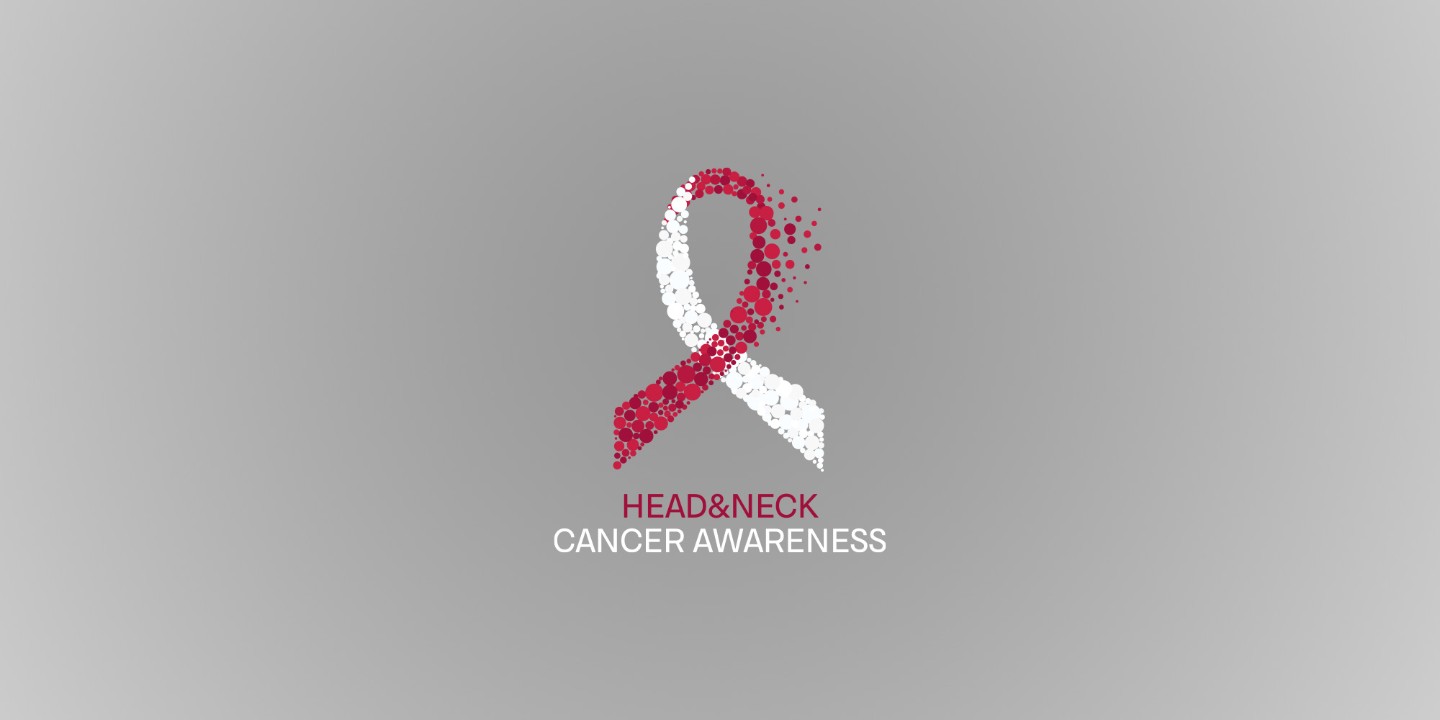The Silent Threat: Radon and Lung Cancer in Non-Smokers
NOV 03, 2025Radon is the number one cause of lung cancer in non-smokers and the second leading cause overall, right behind smoking.
Read More
April is Head and Neck Cancer month and although the head and neck region may appear small compared to the rest of the body, it represents one of the most complex parts of the human anatomy.
Cancers that occur in this region typically derive from the squamous cells that line the mucosal surfaces inside the mouth, nose, throat, and occasionally the salivary glands. Some tumors, however, such as those occurring in the salivary glands may form from adenomatous or other secretory cells. Cancers deriving from squamous cells are referred to as squamous cell carcinomas and those deriving from adenomatous cells are called adenocarcinomas. According to the National Cancer Institute, head and neck cancers account for nearly four percent of all cancers reported annually in the United States.
Alcohol and tobacco product use is a major risk factor for many types of head and neck cancers as is infection with cancer-causing types of human papillomavirus. Other risk factors for head and neck cancers include:
Additionally, head and neck cancers occur more commonly in men than women, and in people over the age of 40 as opposed to those younger.
Common symptoms of head and neck cancers may include a neck lump that does not go away, a sore in the mouth or throat that does not heal, difficulty with swallowing, or a change in voice or hoarseness.
Other symptoms that may reflect the presence of head and neck cancers can include pain or difficulty moving the jaw or tongue, loosening of teeth or dentures that no longer fit properly, unexplained weight loss or fatigue. Keep in mind that all of these symptoms can be caused by other health issues and it is important that you see your primary care physician to have such symptoms evaluated should they persist.
Cancers of the head and neck region are staged on the basis of their size, local extent, and whether the cancer has spread to lymph nodes or other parts of the body such as the lungs. A diagnosis of head and neck cancer is usually accomplished by an ear, nose, and throat specialist (also known as an otolaryngologist), by performing a biopsy of the suspicious area.
Once a diagnosis of cancer is made, patients then undergo various staging studies to determine the cancer’s extent. "Staging," as the process is termed, may involve various types of x-rays, CT scans, or other diagnostic tests.
Once the extent of your cancer is known, preparation for treatment begins. The treatment of head and neck cancers is highly complex and individualized. It might consist of surgery, radiation therapy, chemotherapy, or a combination of one or more of these modalities. In general, the specific type of surgery a patient undergoes is highly dependent on the type of cancer being treated. Chemotherapy tends to be more commonly used in advanced head and cancer cases. Radiation, for the most part, is directed at the cancer site of origin and to the lymph node regions to which the cancer is most likely to spread. Radiation treatment most commonly is given daily over a period of seven weeks.
A host of pre-treatment preparations may be advised by your team of cancer physicians and are typically intended to help you successfully complete your treatments while also reducing any associated side effects. The treatments for head and neck cancers can be quite challenging, but keep in mind, you have a dedicated team of doctors, nurses, dietitians, and other team members that are there to help you reach your goal.
For more information, or to reach out to a provider, visit CHIhealth.com.

Radon is the number one cause of lung cancer in non-smokers and the second leading cause overall, right behind smoking.
Read More
A Nurse Practitioner answers your essential mammogram questions. Understand timing, prep, the procedure, callbacks, and financial options.
Read More
Radiotherapy is a finely tuned, powerful partner that can work with your surgery to give you the best possible outcome for breast cancer.
Read MoreWhen you need local health information from a trusted source, turn to the CHI Health Better You eNewsletter.